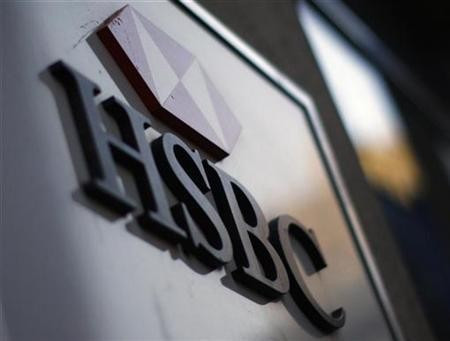Mis-Selling PPI and Fraud Insurance: HSBC Stung With $164m Bill

HSBC was hit with a $164m bill, for paying customers compensation on a number of mis-sold products, in the first quarter this year.
According to the group's first quarter interim management statement, HSBC paid $113m (£72.7m, €86.4m) in redress for payment protection insurance (PPI) and $51m for card fraud protection policies associated with insurer CPP Group.
Despite the bumper amount, this is significantly less than the $468m it paid out in UK customer redress programmes in the same period last year, as well as $640m it stumped up in the last quarter of 2012.
On 8 March, the Financial Services Authority, now the Financial Conduct Authority (FCA), revealed that UK banks have paid nearly £9bn over the past two years to compensate customers mis-sold PPI, in what has become the most expensive financial scandal in British banking history.
In addition, CPPs are tipped to be another thorn in the side of the banks, after some major firms agreed to repay millions of customers who were sold card and ID fraud protection policies from insurer CPP Group.
However, the payouts didn't affect the underlying profit too significantly, as HSBC recorded a 95% increase in first quarter profit primarily due to gains from the sale of its assets as part of a restructuring.
Meanwhile, the group did not announce any additions to the provisions set aside for customers claiming to be mis-sold interest rate swap agreements (IRSA).
To date, it has paid out $599m in provisions and costs associated with IRSAs.
Earlier this month, RBS revealed that it had increased the compensation and administrative cost pot that is set aside for businesses that are claiming to have been mis-sold interest rate derivative products by an extra £50m.
RBS' total set aside stands at £750m.
At the end of March, Barclays said in its results statement that IRHP redress provision stands at £759m, compared with £814m in 2012, after using £55m of this amount during the first quarter for administrative costs.
"The provision reflects Barclays best current estimate of the ultimate cost," said Barclays in a statement.
"It will be kept under ongoing review as the main redress and review exercise progresses, as further information regarding the extent and nature of amounts payable across the impacted population emerges."
IRSAs are contracts between a bank and its customer where typically one side pays a floating, or variable, rate of interest and receives a fixed rate of interest payments in exchange. They are used to hedge against extreme movements in market interest rates over a given period.
Companies that have seen the value of these products move against them as rates fell during the recession now owe banks crippling sums of money in interest payments each year.
But if the businesses want to cancel the contracts, they are faced with higher costs.
At the end of June 2012, the Financial Services Authority, now renamed the Financial Conduct Authority, released its findings from a review that found that 40,000 IRSAs had been sold to customers.
Related Articles:
Mis-Selling Derivatives Q&A: Redress Fight Far From Over, Says Bully-Banks' Jeremy Roe [VIDEO]
Mis-selling Derivatives: Hurdles Still Face SME Compensation Hopes
Mis-Selling Derivatives: Bank Agrees to First IRSA Redress Payouts
Mis-Selling Derivatives Scandal: UK Businesses Fight to Survive [VIDEO]
Mis-Selling Derivatives Q&A: Regulator Should Install Appeals Process [VIDEO]
Mis-Selling Derivatives Q&A: Guto Bebb MP Pushes for TBL Review Inclusion [VIDEO]
Mis-Selling Derivatives Exclusive: Barclays' Lawyers Accused of Breaching Code of Conduct
© Copyright IBTimes 2025. All rights reserved.






















